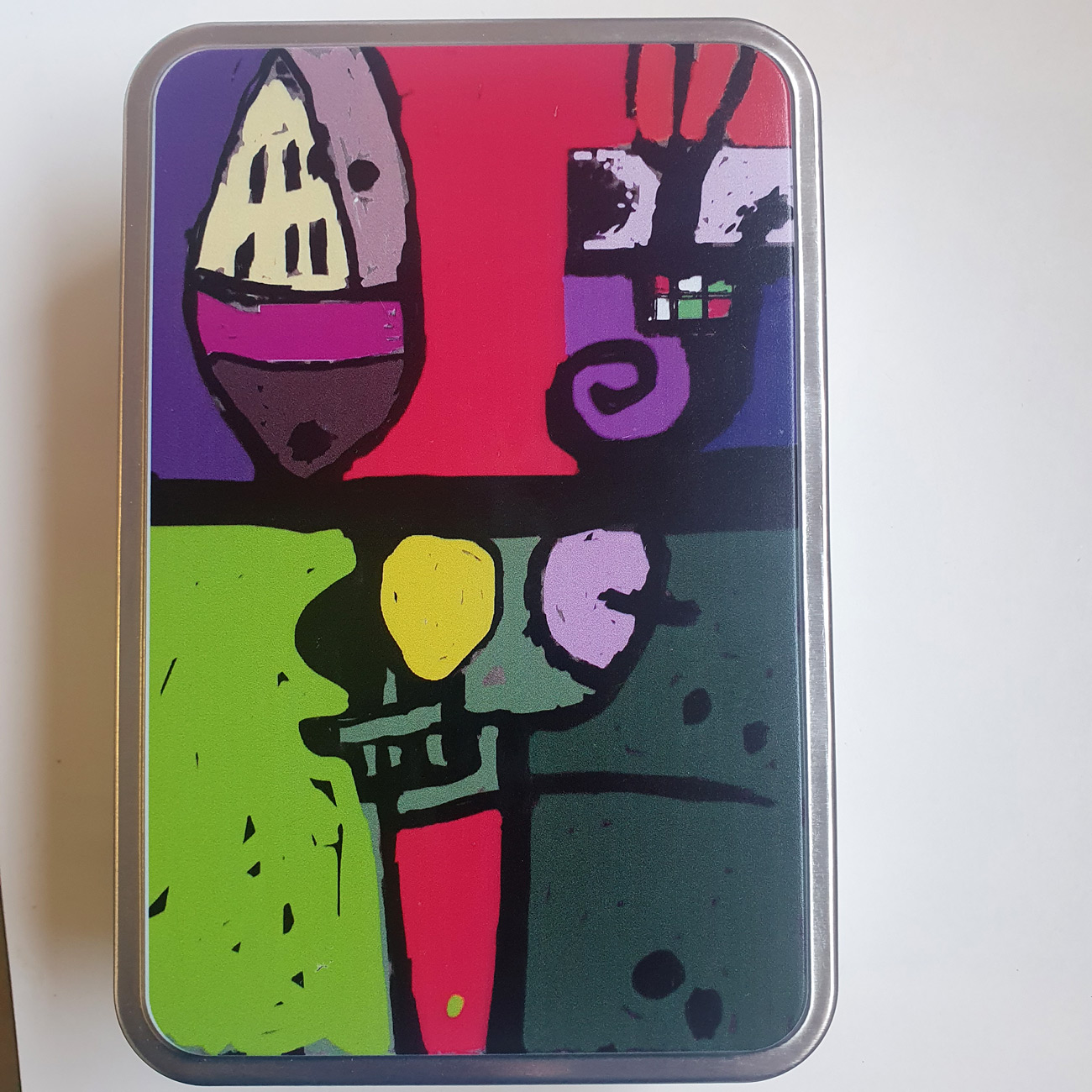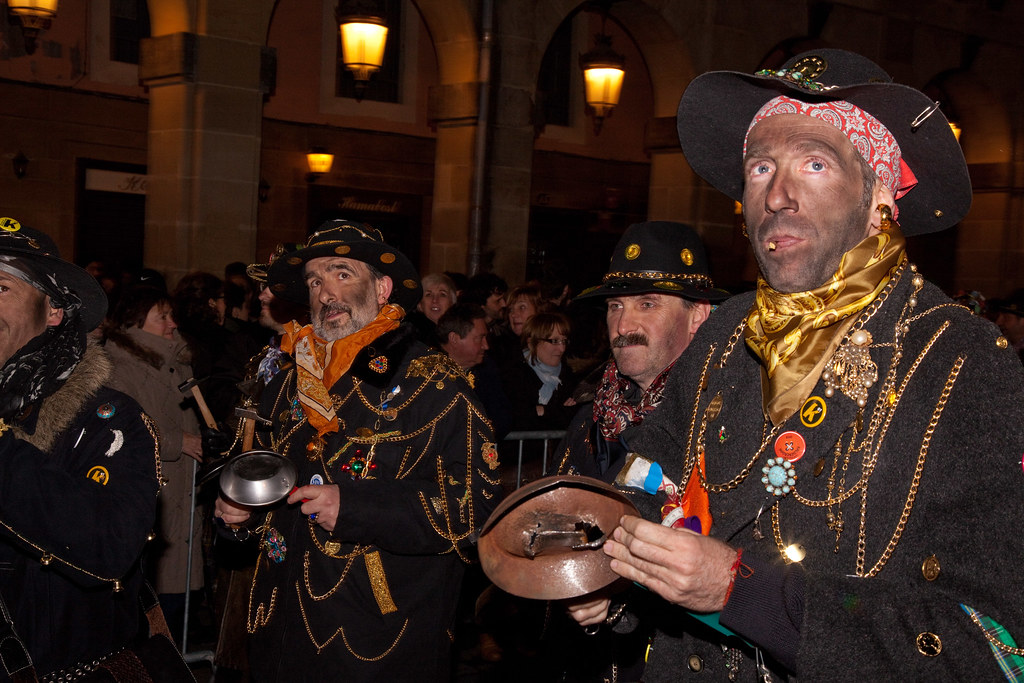Dilation or purification of identity
The problem of immigration (nomadic proletarian) should not be addressed by policies that impose the integrative assimilation of the languages and cultures of the coming nations, as is usually done in the states of the globalized capitalist world.
In many of these states there are oppressed nations, as in Spain (Galicia, Catalonia, Basque Country). And in those nations, especially in the Basque Country and in Catalonia, there are many nomadic prolories.
There is no policy of their own in this area. And, if there is not, it ends up doing the same policy applied by the Spanish State to integrate and assimilate with us, with the people who come from other peoples, in Catalonia, in Galicia and in the Basque Country. So that we give up our identity and feel Spanish.
With the transfer of competences to historical nationalities, a series of xenophobic episodes have appeared in Catalonia, especially those shown by the city council of Ripoll.
So what we have to be clear about is that, even intentionally, we do not have enough powers to embed anyone hard: to give up their identity and accept ours.
Before an oppressive state that seeks the integration and assimilation of nomadic proletarians, we must articulate a policy based on respect and mutual knowledge in stateless nations”
It is clear that the Spanish State has this strength. And it's detected by the nomadic prolethal. Therefore, faced with the obligation to integrate, it is evident that it will be integrated into the language and culture of the Spanish nation and not into the Catalan, Galician or Basque language. It will also become an ally of the Spanish State against the Galician, Basque and Catalan people, who have not been able to offer their own and different alternative.
That is why we must avoid at all costs being a nomadic proletarian used to build Spain, in the countries where he himself crushes it.
Why is it such an important and sensitive issue? Because what is at stake is fundamental in human beings: the problem of identity does not matter!
Therefore, before an oppressive State that seeks the integration and assimilation of nomadic prolems, we must articulate a policy based on respect and mutual knowledge in stateless nations that allows them to live and take root in their new country. In particular, we must make it easier for them to understand the language and culture of the host people so that they do not have to join the oppressive state. In other words, we must facilitate their participation, which means diminishing their identity, not giving up. Considering that identity is not immovable static, identity dilation gives us a dynamic identity, open to the new one.
On the contrary, as citizens of the host people, we must be open to what is new to us from other peoples and cultures, in order to expand our own identity.
The only way for the nomad proletarian to participate in our culture is to facilitate its dilation, its dynamic identity. On the contrary, with forced integration, we pushed them to purify their own (fundamentalism), thus becoming xenophobic, like racists who play globalized capitalism, eliminating nomadic prolems that he does not need, which he considers to be criminals.
We talk about the expansion of identity, not only from a theoretical point of view, but from the personal experiences we have experienced in the movement of the ikastolas. And ourselves, at the ikastola Toki Eder. There, fathers and mothers from other nationalities and regions of the Spanish State, we joined in the struggle for the Euskaldunization of our sons and daughters, thus expanding our identities: learning Basque, knowing the Basque culture; making our own known and sharing them with the people of Euskal Herria. That is, developing the dynamic dimension of our identities.
No one forced us to integrate, it was a fusion of desires and desires to build and share Euskal Herria more just, solidarity and Euskaldun.
In our view, that should be what should guide our policy as far as nomadic prolems are concerned.
We have to build the people together: between the originals and the venoms.
The oppressed peoples must make a new, different and revolutionary policy based on respect and justice.
Xabier Rodríguez and Nikolas Xamardo
Bidali zure iritzi artikuluak iritzia@argia.eus helbide elektronikora
ARGIAk ez du zertan bat etorri artikuluen edukiarekin. Idatzien gehienezko luzera 4.500 karakterekoa da (espazioak barne). Idazkera aldetik gutxieneko zuzentasun bat beharrezkoa da: batetik, ARGIAk ezin du hartu zuzenketa sakona egiteko lanik; bestetik, egitekotan edukia nahi gabe aldatzeko arriskua dago. ARGIAk azaleko zuzenketak edo moldaketak egingo dizkie artikuluei, behar izanez gero.
Just as we experienced the flourishing of the Basque Country with the help of the artists, so that this time, taking advantage of their impulses, we continue to make our way together giving the necessary support to the Basque political prisoners, exiles and deportees
The... [+]
Epistemology, or theory of knowledge, is one of the main areas of philosophy, and throughout history there have been important debates about the limits and bases of our knowledge. Within this we find two powerful corridors that propose different ways of accessing knowledge: The... [+]
We learned this week that the Court of Getxo has closed the case of 4-year-old children from the Europa School. This leads us to ask: are the judicial, police, etc. authorities prepared to respond to the children’s requests? Are our children really protected when they are... [+]
I don't want my daughter disguising herself as a Gypsy in the caldereros. I don’t want Gypsy children at my daughter’s school to dress up as Gypsies in caldereros. Because being a gypsy is not a disguise. Because being a gypsy is not a party that takes place once a year, with... [+]
The year 2025 will lead to a general policy of establishing shorter working weeks, bringing low costs for new hires for companies and an effective direction of change in labour relations.
With the aim of complying with the Spanish government agreement, the reform to shorten the... [+]
To be honest, I don't know why I'm writing this. In today’s hostile environment, opinions of this kind are not well received. Perhaps LUZ will not publish this because it does not correspond to the opinions they have published so far (but if they have finally decided to publish... [+]
On January 15, the techno-business lobby called Cedarios presented its 6th report, Euskadi and the European Union, the shared destiny of prosperity and competitiveness. This neoliberal Think Tank, made up of eminent experts drawn from the world of finance, presented a magical... [+]
We Basques move our feet behind the witness of Korrika to proclaim that we want to survive as a Basque people in favor of our language, with the aim of the Basque Country we desire.
The tipi-tapa is the first step taken by a migrant person who leaves his homeland in Africa,... [+]
And for another year, the unions have organized prefabricated strikes for us. And we, individually, will decide whether or not to join the strike, without the need for any assembly at the school.
The strike model that I was taught is no longer in vogue, it seems. In my... [+]
Today, January 21, is a day to remember and reflect on an interesting ephemeris of our recent history. It is 50 years since the lockdown of 47 workers from Potase in Navarre. This lockdown, which lasted fifteen days, caused a general strike in Navarre, the Department of the... [+]
A couple of weeks ago, a number of data from Norway was published. In this country of Northern Europe electric cars have predominated, being the Tesla brand the most sold, with 90% of recyclable energy consumed there. On the contrary, Norwegian public enterprises have no problem... [+]
These were my last words when we left, held hand in your deep breathing sleep. Your heart stayed forever without a special, simple, dignified pain. As you want and demand. How we want and respect.
Already a month before the arrival of winter, the last days of the longest night,... [+]
Today, the voices of women and children remain within a culture that delegitimizes their voices, silencing their experiences, within a system aimed at minimizing or ignoring their basic rights and needs. A media example of this problem is the case of Juana Rivas, but her story... [+]












.jpg)